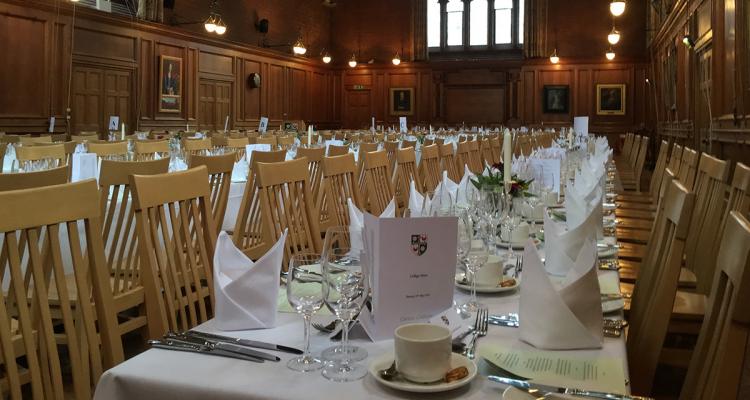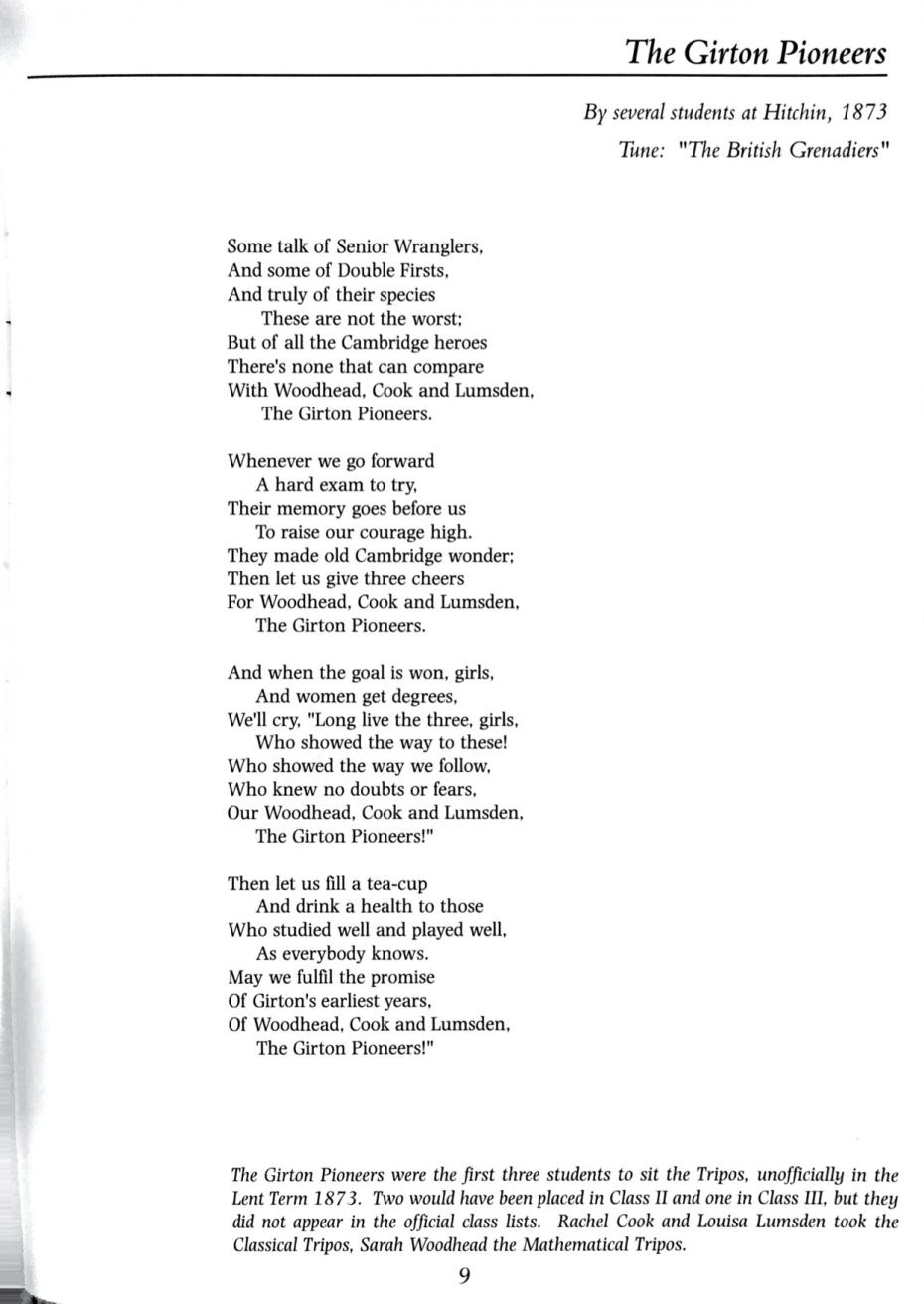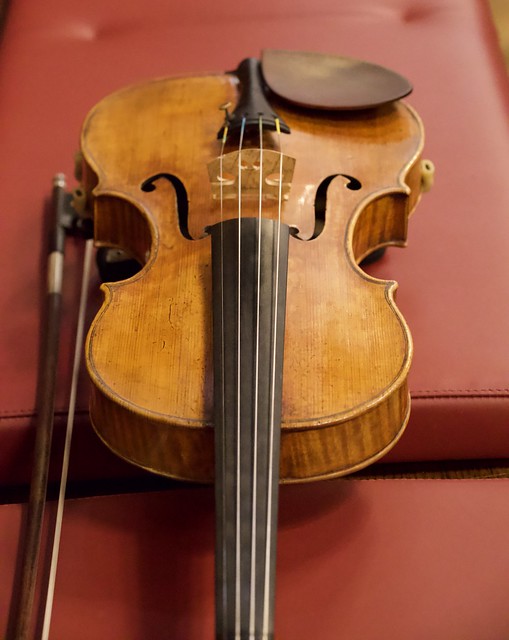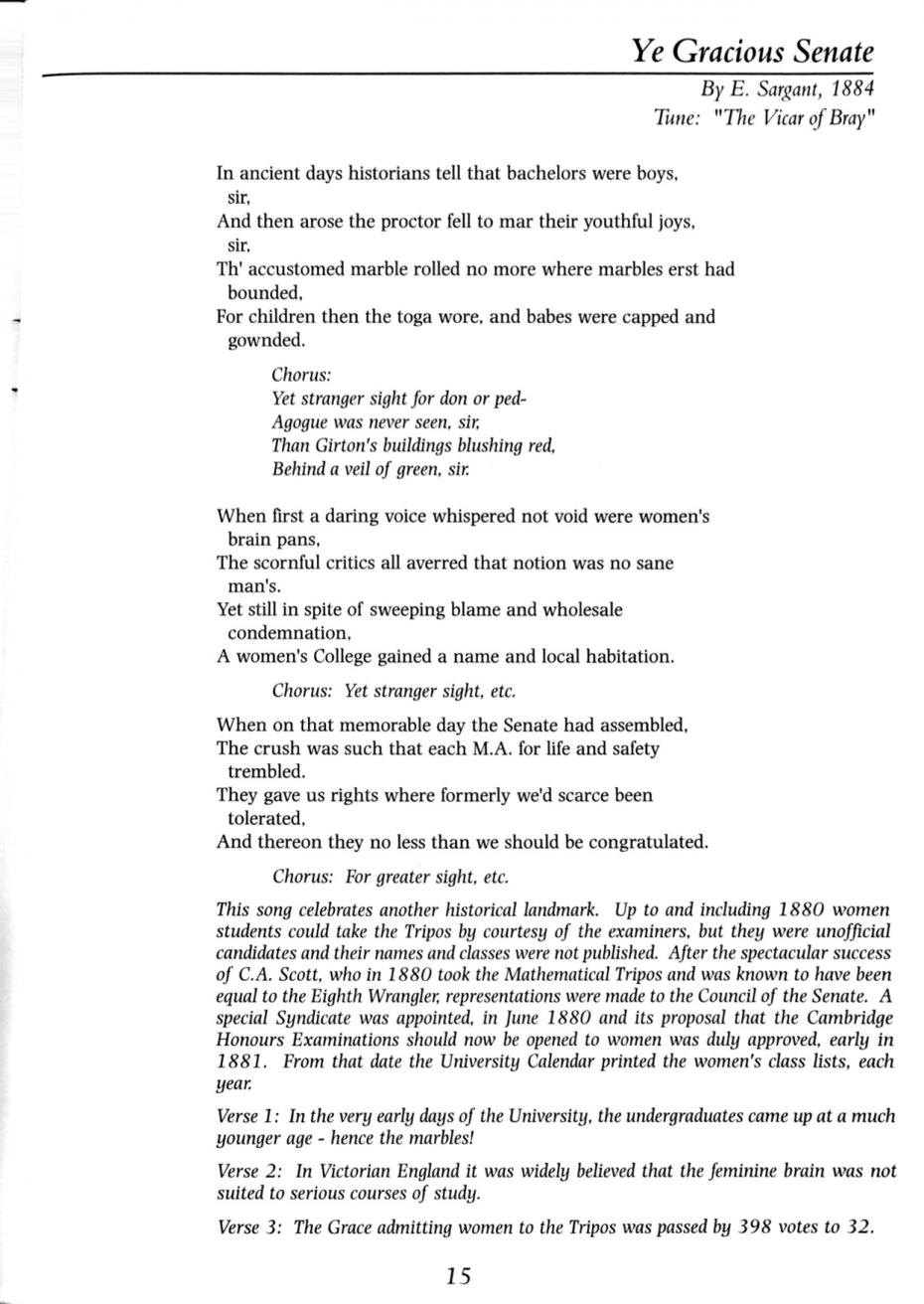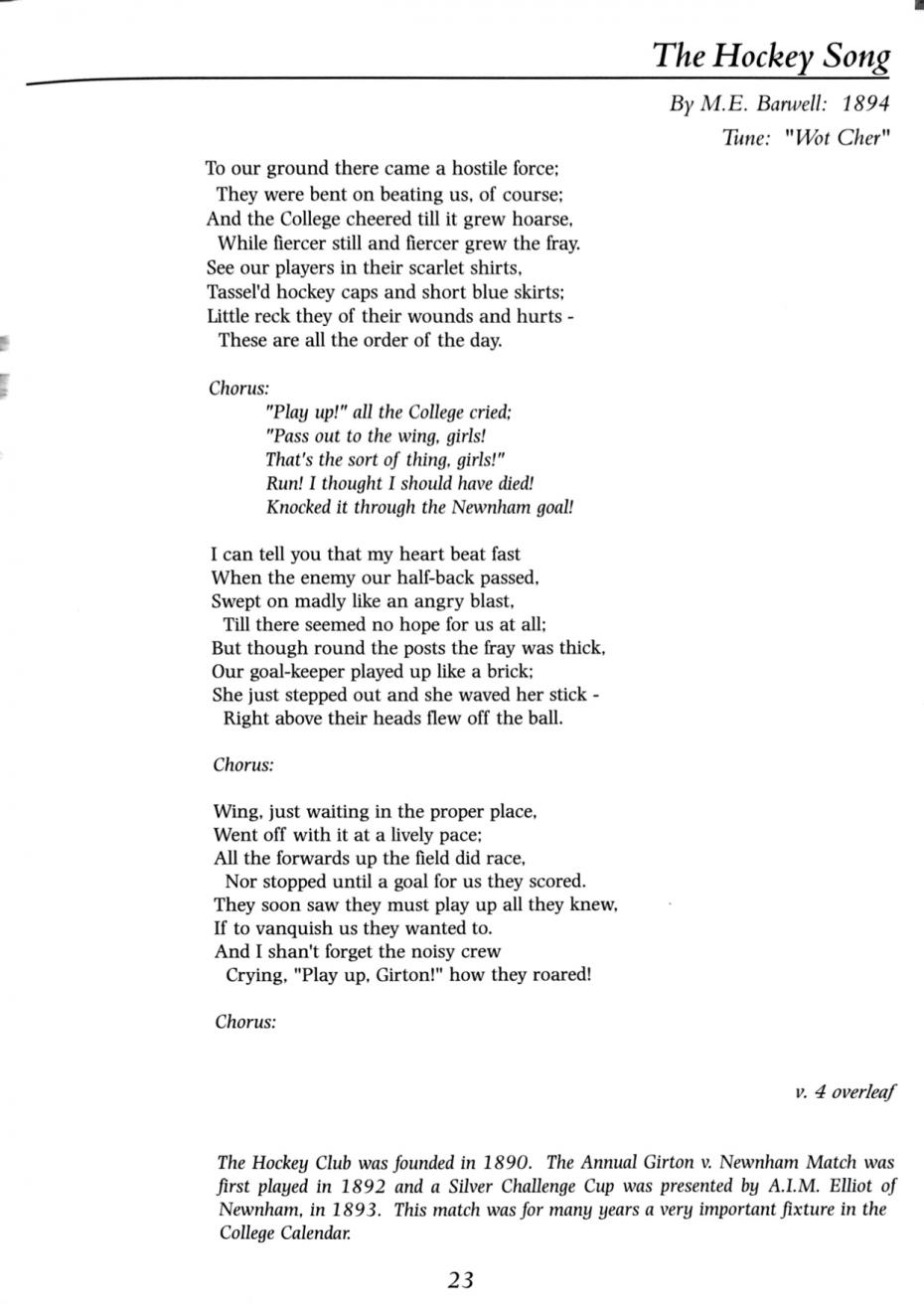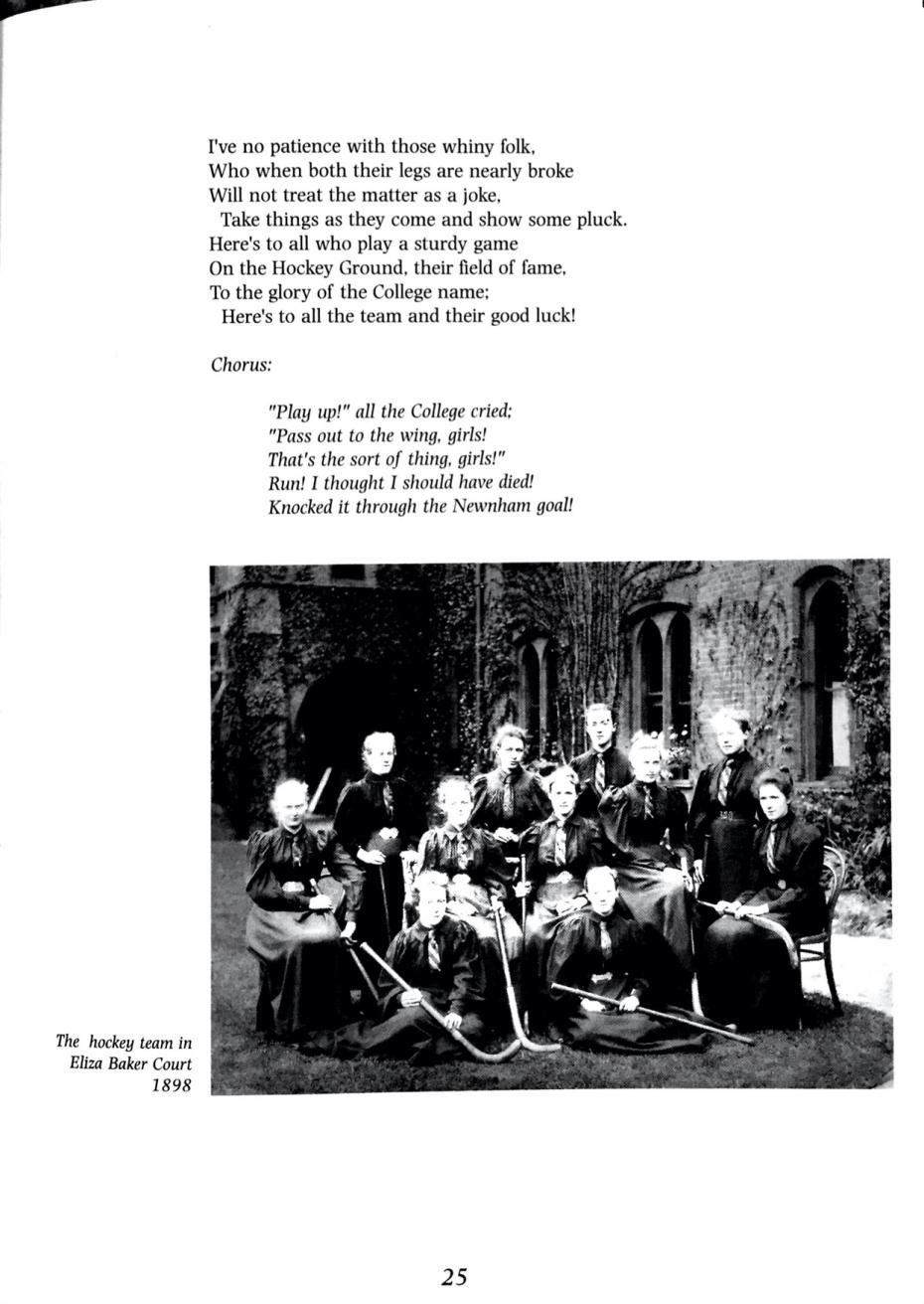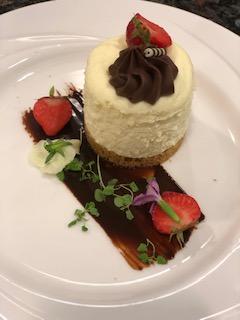Finale: The College Songs
The first Girton feast took place on 18 May 1948. The College flag was in full flight as it is today, and there were sprigs of laurel on the tables. Emily Davies’ portrait looked down on sparkling glass and cutlery, glistening white damask, bowls of fresh flowers, and the cheerful inflow of feasters in their ‘gay colours and elegant new looks’.
You will not be surprised to know that this first feast established a number of new traditions. Some have not endured! However when, at the end of that first remarkable evening, a cross-section of revelers got together with a selection of senior members, climbed to the top of the tower and, by light of moon and torch, sang a medley of College songs, there was no going back.
Over the years, the song book has expanded substantially. It now highlights many aspects of the history and life of the College: sports (the golfing song, the cricket song, the swimming song, and the hockey song); student societies and institutions (including the fire brigade and the pig club); and new buildings, though it should be noted that space remains for anyone wishing to come forward with the Ash Court Chant, the Swirles Court Serenade, the Duck Pond polka or similar.
The main reason for singing some College songs at the feast, however, is that they underline the monumental struggles that Girton - as an institution, and in the shape of the individuals who make it what it is (ie you) - has engaged in over the years in the interests of excellence, inclusion and an ethic of care.
So there are songs, like the ‘The song of degrees’, that tell of the prejudices the early women students faced, and others like ‘The search for an examiner’ that note how difficult it was to get anyone from the University to lend credibility to their studies. In keeping with that tradition and to round off Feast Online, here are two more College songs sung by the Girton College Chapel Choir. The words are provided, so please do join in…
‘Ye Gracious Senate’ was written by botanist and OG Ethel Sargent in 1884. Sung to the tune of ‘The Vicar of Bray’ it marks the moment in 1881 when women, having so far only been allowed to sit the Tripos by vague courtesy of the examiners, finally, thanks to the influence of an important petition demanding it, as well as the spectacular success of a Girton mathematician (C. A. Scott), had the right to enter university exams. Miss Scott, by the way, was almost caught by the tumbling chimney of 1881 that is mentioned in the Mistress's speech.

